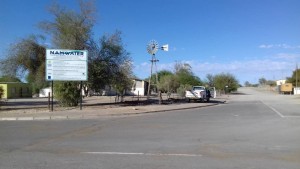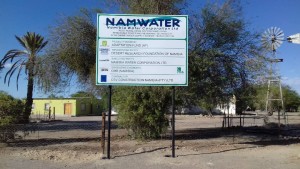Namibia relies heavily on groundwater for the supply of water, and the predicted increase in both temperature and rainfall variability due to climate change will increase this reliance. However, in many areas the dissolved solids content of the locally available groundwater exceeds the approved threshold for human consumption. Decreased aquifer recharge due to periods of lower rainfall caused by climate change is likely to cause an increase in total dissolved solids in groundwater, which will exacerbate the water quality situation.
Pumping water over long distances from other water sources is not a feasible option for supplying small communities with good quality water. An alternative is to improve the quality of locally abstracted groundwater by applying treatment techniques. These techniques require energy in the form of electricity, but many of the small communities are not coupled to the national electricity grid. It is also considered that the energy needs for treatment should be met by sustainable and environmentally sound resources.
The objective of the project is to pilot the treatment by reverse osmosis (RO) of poor quality local groundwater to a level that complies with the national standards for drinking water, using sun and wind energy to power the process. Execution of the project will yield a wide range of information and knowledge on both technical and social aspects of establishing and operating such treatment and power plants. The acquired information, knowledge and skills will then be communicated to stakeholders in the water supply sector in order that the applied technology could be mainstreamed and replicated elsewhere in the country.
The project will result in improved resilience of vulnerable communities and groups to climate change impact, specifically to a decrease in chemical water quality of existing groundwater sources. In addition to providing benefits to vulnerable communities in the target areas, the project will also serve to increase the capacity of government agencies to integrate climate change adaptation considerations into water supply planning and policy processes.
Learn more
- Video: Innovative Water Treatment Using Desalination Plants in Namibia
- Namibia Economist (October 20, 2017): Rural water treatment project gets N$60 million injection from the Adaptation Fund
| Component 1. Development of pilot desalination plants at Bethanie and Grünau | US$ 2,284,230 |
| Component 2. Development of pilot hybrid renewable energy plants at Bethanie and Grünau | US$ 1,486,254 |
| Component 3. Testing and commissioning of plants at Bethanie and Grünau; and training of staff and students | US$ 19,161 |
| Component 4. Piloting of the plants at Bethanie and Grünau | US$ 367,917 |
| Component 5. Supply good quality water in sufficient quantities to the communities at the two project sites during piloting of the plants | included in Component 4 |
| Component 6. Sensitise beneficiaries and local stakeholders at Bethanie and Grünau | US$ 7,299 |
| Component 7. Information and knowledge dissemination to regional and national stakeholders | US$ 5,474 |
| Project execution cost | US$ 437,759 |
| Total project cost | US$ 4,607,994 |
| Implementing Entity Project Cycle Management Fee | US$ 391,680 |
| Grant Amount | US$ 4,999,674 |
Project Documents
| Attachment | Type | Size |
|---|---|---|
| Project document | 15 MB | |
| PPR1 (for web) | XLSX | 223 KB |
| PPR2 (for web) | XLSX | 248 KB |
| PPR3 (for web) | XLSX | 258 KB |



